Different situations can provoke different reactions in us.
A threatening possibility can inspire fear.
The anticipation of a positive happening may cause joy.
A difficult problem may, of course, leave us puzzled.
In the gospel text at the beginning of this celebration of Palm Sunday (Lk.19:28-40),
there is something which I find always… surprising, even astonishing!
We see the scene of Jesus entering Jerusalem and we are told that: 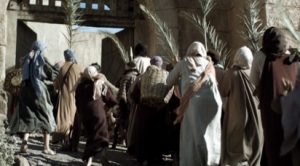
“The whole group of disciples joyfully began to praise God…
for all the miracles they had seen.”
You may think this is not surprising – and you are right.
Miracles awaken people to something wonderful happening in their midst.

What is surprising is what happened – or rather, what did NOT happen – five days later!…
When Jesus was brought before his judge – the Roman procurator – no one appears to speak for him.
I ask myself: all those who benefited from these miracles, where are they?
The blind who can now see,
the lame who now walk like everyone else,
the lepers free from their terrible condition,
all the sick suffering in one way or another and who are now well,
all of them, have they nothing to say to affirm that this man did nothing but good?
To me, this is really amazing! Not one comes up to witness in favour of Jesus.
Today, the crowd shouts with joy, the following Friday the crowd will shout again in… accusation.
Fickleness, yes, the ‘changeability’ of humans, of us…
I know someone who has coined a word to express the opposite – the word is ‘stick-to-it-ness’!
You will not find it in the dictionary but I believe that the reality of it should be found…
in our lives as disciples of Christ.
It is the faithful perseverance, or endurance.
And we have been told: “Your endurance will win you your lives” (Lk.21:19).
Note: Another reflection is available on a different theme in French at: https://image-i-nations.com/dimanche-des-rameaux-annee-c-2019/

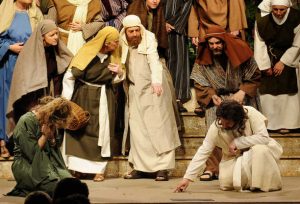
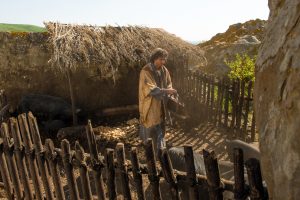

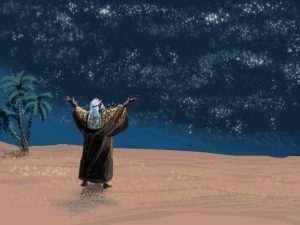 The 1st reading of this Sunday (Gn.15:5-12,17-18) is a good example of this.
The 1st reading of this Sunday (Gn.15:5-12,17-18) is a good example of this.
 “I rescue all who cling to me,
“I rescue all who cling to me,
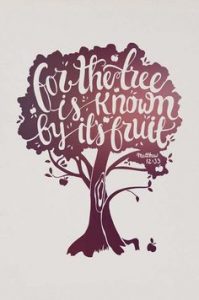
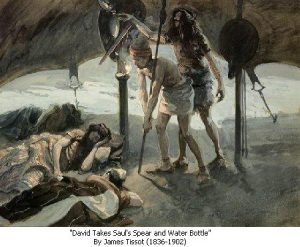
 This takes place many centuries before Jesus coming into our world
This takes place many centuries before Jesus coming into our world
